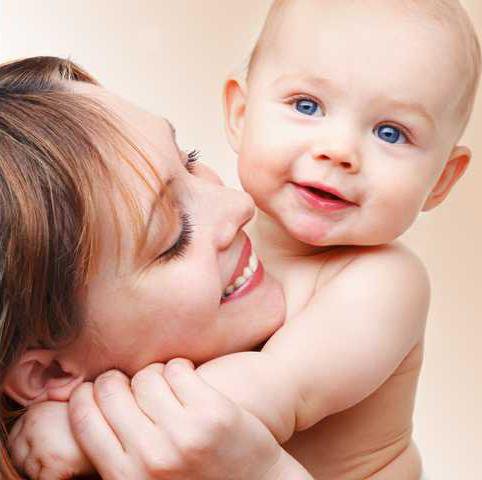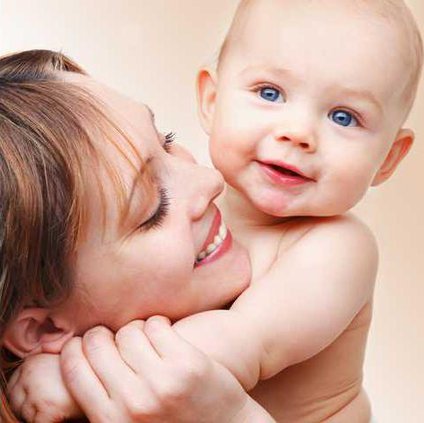I am a parent. I have a 9-month-old daughter whom I love very much. Ive cared for her, fed her, changed her diapers and spent many nights awake trying to soothe her. Becoming a parent has been a wild ride, full of new adventures every day.
Yet, according to my siblings, parents, family, friends and random strangers on the street, Im not a parent. My profoundly personal experience is null and void because my experiences arent exactly like theirs.
Youve probably been told you're not a parent also. Heck, you might have told other people they arent parents. All because of this quasi-tradition of saying to new parents, You're not a parent until ...
Some of the most memorable you're-not-a-parent-until stories Ive heard include catching your childs vomit with your bare hands, leaving a child in the car on accident, having to sift through your childs poop looking for loose change he swallowed and having to wrap your child in a towel because she had a massive diaper blowout and there are no clean clothes.
People use these statements as ways to share experiences, but the statement that precedes them is insulting. It pushes that being a parent depends on a single event and that you're not a parent until you have experienced a profoundly distressing, gross or irresponsible moment.
Imagine if you were a painter working on a beautiful piece of art and looking for some well-deserved praise from more experienced artists. Yet, instead of praise or helpful advice, you get somebody who says, You're not a real painter until you make a stick figure with watercolors. Its not helpful at all, and its quite insulting.
When I became a parent
Becoming a parent is very personal and not something that should be trivialized. In all honesty, when you ask somebody to describe the moment he or she became a parent, it usually is a very emotional story. For my wife, the moment she became a parent was when we got that positive pregnancy test. For me, it was when my wife was diagnosed with cholestasis, and the doctor explained that our unborn child was at risk. At that moment, I would have done anything and everything to make sure my daughter was born healthy.
In my opinion, what makes someone a parent is a willingness to sacrifice everything for his or her child. Its placing the needs of the child before yourself. Its caring for another human life before you care for yourself.
So, thats why, when people tell me Im not a parent because I havent had a particular experience, I get angry. I understand they dont mean to offend me and its not like theyre harassing me on purpose. What makes me angry is that this practice celebrates bad parenting while trivializing that important moment of becoming a parent.
How this tradition isnt helping the world
Most you're-not-a-parent-until stories highlight a mistake or crazy incident in the persons life. These stories rarely condemn a mistake but instead celebrate it, claiming it as a part of "becoming a parent." Yet, thats the opposite of what we should want. We should want new parents to learn from the mistakes of the past, not repeat them. Repeating mistakes is the path to poor parenting, showing you arent learning and evolving for your children.
We dont need more bad parents. There are plenty of those in the world already. Its actually pretty sad that we need social workers to protect children from their own parents. We, as a society, need to prevent these type of situations and support parents whom may be struggling. We need to discourage being bad parents and start focusing on helping parents become better.
New parents dont need to hear its okay to be a bad parent. Being a parent is hard, and people encouraging us to be selfish is harmful. We need uplifting stories of getting children to sleep through the night, how parenthood is so fulfilling and general encouragement on how we are doing a good job. We want real advice and gentle guidance when we do make mistakes, not people comparing those mistakes to ones they made and telling us its all okay.
What to do instead
This tradition is one that needs to stop. Its one of those things that people do because it happened to them when they were new parents. Its no different from hazing the new freshmen or giving the new kid at school a hard time.
So, the next time you feel the need to say something starting with, Youre not a parent until, stop and think. Will this story actually help new parents? If the answer is no, then dont share it. Instead, compliment their baby and their parenting skills. Give helpful advice from your personal experience. Talk about things people normally dont give advice about, or even ask what they are struggling with and address some issues there. Help other parents become better and feel more comfortable being new parents.
Yet, according to my siblings, parents, family, friends and random strangers on the street, Im not a parent. My profoundly personal experience is null and void because my experiences arent exactly like theirs.
Youve probably been told you're not a parent also. Heck, you might have told other people they arent parents. All because of this quasi-tradition of saying to new parents, You're not a parent until ...
Some of the most memorable you're-not-a-parent-until stories Ive heard include catching your childs vomit with your bare hands, leaving a child in the car on accident, having to sift through your childs poop looking for loose change he swallowed and having to wrap your child in a towel because she had a massive diaper blowout and there are no clean clothes.
People use these statements as ways to share experiences, but the statement that precedes them is insulting. It pushes that being a parent depends on a single event and that you're not a parent until you have experienced a profoundly distressing, gross or irresponsible moment.
Imagine if you were a painter working on a beautiful piece of art and looking for some well-deserved praise from more experienced artists. Yet, instead of praise or helpful advice, you get somebody who says, You're not a real painter until you make a stick figure with watercolors. Its not helpful at all, and its quite insulting.
When I became a parent
Becoming a parent is very personal and not something that should be trivialized. In all honesty, when you ask somebody to describe the moment he or she became a parent, it usually is a very emotional story. For my wife, the moment she became a parent was when we got that positive pregnancy test. For me, it was when my wife was diagnosed with cholestasis, and the doctor explained that our unborn child was at risk. At that moment, I would have done anything and everything to make sure my daughter was born healthy.
In my opinion, what makes someone a parent is a willingness to sacrifice everything for his or her child. Its placing the needs of the child before yourself. Its caring for another human life before you care for yourself.
So, thats why, when people tell me Im not a parent because I havent had a particular experience, I get angry. I understand they dont mean to offend me and its not like theyre harassing me on purpose. What makes me angry is that this practice celebrates bad parenting while trivializing that important moment of becoming a parent.
How this tradition isnt helping the world
Most you're-not-a-parent-until stories highlight a mistake or crazy incident in the persons life. These stories rarely condemn a mistake but instead celebrate it, claiming it as a part of "becoming a parent." Yet, thats the opposite of what we should want. We should want new parents to learn from the mistakes of the past, not repeat them. Repeating mistakes is the path to poor parenting, showing you arent learning and evolving for your children.
We dont need more bad parents. There are plenty of those in the world already. Its actually pretty sad that we need social workers to protect children from their own parents. We, as a society, need to prevent these type of situations and support parents whom may be struggling. We need to discourage being bad parents and start focusing on helping parents become better.
New parents dont need to hear its okay to be a bad parent. Being a parent is hard, and people encouraging us to be selfish is harmful. We need uplifting stories of getting children to sleep through the night, how parenthood is so fulfilling and general encouragement on how we are doing a good job. We want real advice and gentle guidance when we do make mistakes, not people comparing those mistakes to ones they made and telling us its all okay.
What to do instead
This tradition is one that needs to stop. Its one of those things that people do because it happened to them when they were new parents. Its no different from hazing the new freshmen or giving the new kid at school a hard time.
So, the next time you feel the need to say something starting with, Youre not a parent until, stop and think. Will this story actually help new parents? If the answer is no, then dont share it. Instead, compliment their baby and their parenting skills. Give helpful advice from your personal experience. Talk about things people normally dont give advice about, or even ask what they are struggling with and address some issues there. Help other parents become better and feel more comfortable being new parents.








